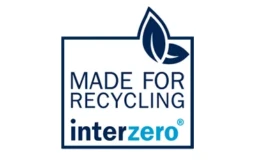MADE FOR RECYCLING:
Is your packaging recyclable?
Designing recyclable packaging and avoiding non-recyclable waste is a task that is increasingly important for retailers, leading brands and packaging manufacturers.
Packaging recyclability assessment
The term ‘recyclability’ refers to the degree to which materials used to produce a product that has reached the end of life can be returned to the material cycle, thus closing the material loop.
The packaging assessment process checks whether the end user (household) will be able to separate the packaging and place it in the recycling system correctly, what are the physical properties of the packaging so that it can be identified and correctly separated by the sorting system, and whether there is a local infrastructure in place to recycle the material.
We provide advanced laboratory measurement, analysis and environmental process diagnostics to optimise product packaging according to EU directives. We will use a rating scale to set threshold and target values for the recyclability of your packaging materials.
We will also provide guidance on how to improve or certify the high level of recyclability of your packaging.
Do you know how recyclable your packaging is?
Interzero has developed the “Made for Recycling” service in cooperation with the German Bifa Institute – a packaging recyclability check based on generally accepted standards developed and validated by independent international institutes. Verification follows a simple procedure. Interzero analyses the packaging samples at its Plastic Recycling Competence Centre and determines to what extent the packaging can be recycled. We use a scoring and rating system based on various factors: the size of the packaging, its conductivity, whether the end-user will be able to separate it properly, whether there is an infrastructure nearby for recycling used packaging materials, etc. The method is the result of the Interzero Group’s own development. Once the packaging assessment process is complete, we prepare a report and award a certificate of the packaging sampling results. If the recyclability rate of the packaging is not sufficient, a plan to improve recyclability is also drawn up.
Steps to certification and the Made for recycling quality label:
- You send 5 sample packs.
- Your packaging is tested and analysed at the Competence Centre for Plastics, Maribor, Slovenia.
- You receive a certificate and a recyclability report with concrete and practical recommendations if further action is needed.
- Optimise your packaging.
- Let’s review and analyse your improvements again.

Watch the free webinar The Made for Recycling Packaging Recyclability Verification Process
Why do Made for Recycling certified products help promote the circular economy?
High recyclability
Packaging can be recycled far beyond the legal minimum standard.
Proper waste disposal
The consumer knows how to sort and dispose of them.
Efficient sorting
In sorting systems, they are assigned to the right material.
Optimal use
They are valuable materials that can be reused in new products and packaging.
More responsibility
You are making an important contribution to promoting a circular economy.

Recyclable ice cream packaging
To ensure the best position for circular economy practices, Unilever has put its Cremissimo ice cream packages under the microscope. Laboratory analysis has confirmed that Cremissimo packaging is very easy to recycle – and has been awarded the “Made for Recycling Interseroh” quality label. The ice cream packaging is made of 100% polyolefin and is designed without non-recyclable barriers.
Packaging ready for the circular economy
New: chocolate in a paper bag – the new Ritter Sport “mini bag” is now available in a paper bag, which is very easy to recycle and has been stamped “Made for recycling Interseroh”. With the new “mini bag”, Ritter Sport has taken the first step towards paper packaging use. For this purpose, a newly developed special paper is used, the coating of which does not cause problems in the recycling process.


Cheese in recyclable packaging
Grunlander semi-hard cheese is available in more sustainable packaging from September 2021. It is made of 94% recyclable material and is certified “Made for recycling”. Packaging only makes its mark if it can be easily or – as in the case of Grunlander – very easily recycled.
Contact our team for any questions about the offer!

M + 386 01 560 91 50
